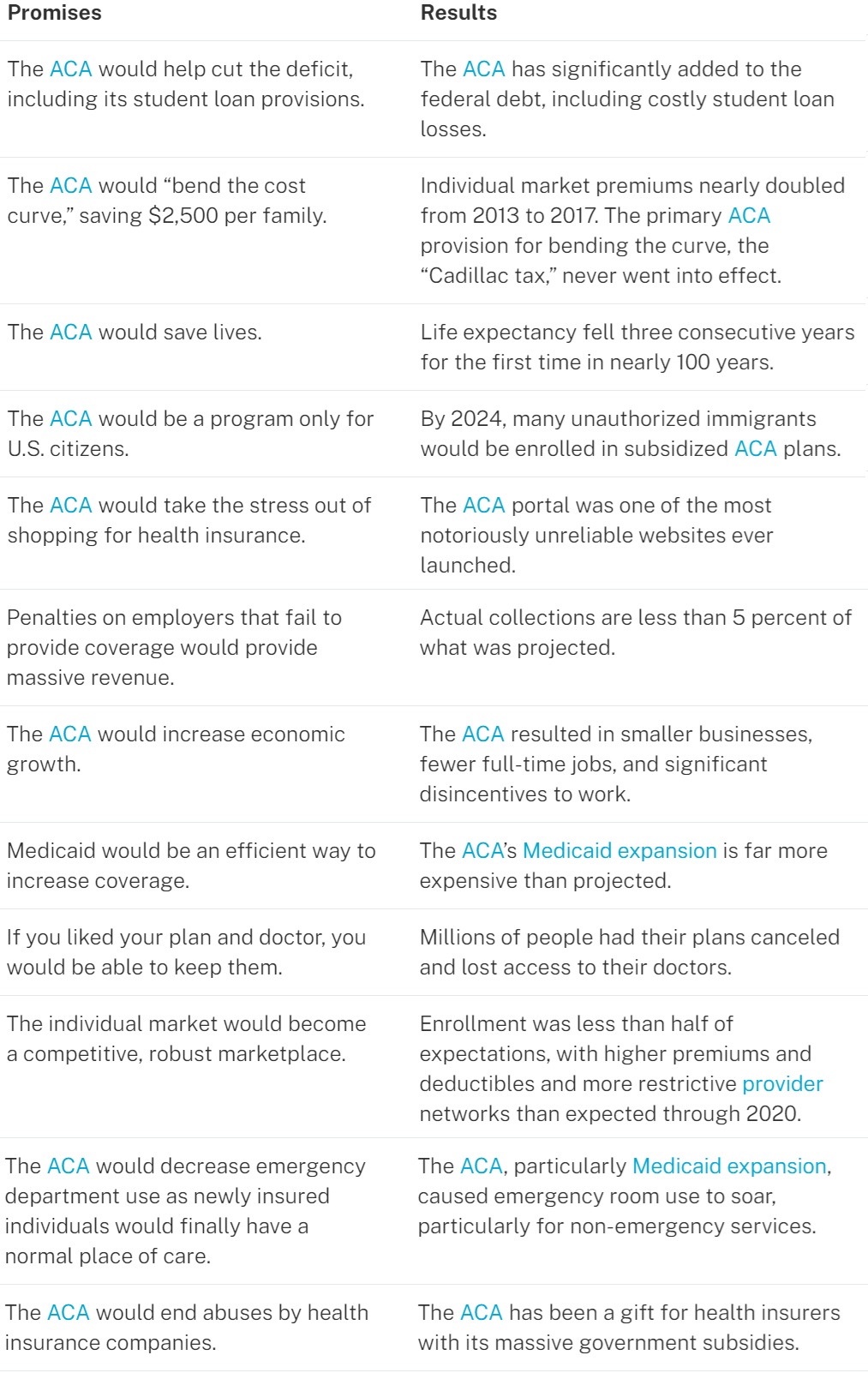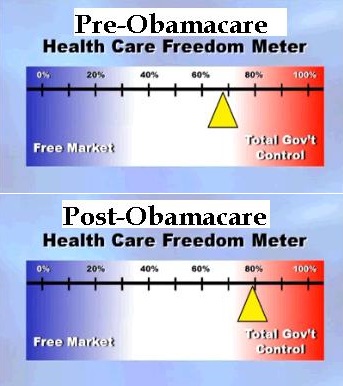When I first started writing this column, it was during Obama’s first year and the big controversy was his plan for more government control over health care.
I focused mostly on the adverse fiscal implications, but also warned that Obamacare would worsen the third-party payer problem that makes American healthcare needlessly expensive and inefficient.
So who was right, supporters or critics?
According to a new study from the Paragon Institute and the Committee to Unleash Prosperity, Obamacare has been a failure. The study, co-authored by Brian Blase, Casey Mulligan, and Phil Kerpen, lists the promises and results.

James Capretta of the American Enterprise Institute also looked at what Obamacare has meant.
Here are some excerpts from his article for the Dispatch. He starts by reminding readers what was in the law.
In short, after 14 years, the law that was a signature initiative of President Obama has a mixed record… While the ACA is a sprawling measure with scores of disparate provisions addressing the nation’s vast health system, its core changes were relatively few. Perhaps most notably, the law pushed states to expand their Medicaid programs… To date, 40 states plus the District of Columbia have expanded Medicaid. Among the 10 states still holding out are Texas, Florida, and Georgia. …the ACA made it much easier for less-healthy Americans to secure and retain insurance by outlawing premium adjustments based on health status. …These changes lowered premiums for people with pre-existing conditions and raised them for everyone else. …the ACA created a new premium and cost-sharing subsidy system.
He then reviews the results.
Most Americans did not benefit from the Medicaid expansion or the new premium subsidies because they were already enrolled in coverage… The ACA has increased the percentage of the U.S. population enrolled in health insurance. …Those with budgetary concerns about the ACA were right that the spending was near certain to occur (and likely would be expande) and that the offsets were on much shakier political ground. Since 2010, many provisions in the original ACA that would have imposed more budgetary discipline have been repealed. Congress also increased the generosity of the premium and cost-sharing subsidies and made millions of additional households eligible for assistance. These changes point clearly toward higher long-term budgetary costs.
And he has a very depressing – but sadly accurate – conclusion.
Heading into the 2024 election, …the ACA will largely look similar regardless of who wins. …On the Republican side, there is no prevailing theory of enduring cost control. Many in the party say they favor less regulation and a “free market,” but they have little appetite for actually moving in a market-oriented direction.
My two cents is that Obamacare was bad legislation, but the U.S. already had a system that was messed up by government.
Indeed, my back-of-the-envelope healthcare freedom meter only got a a little bit worse when the law was enacted.
So repealing Obamacare is part of the solution, but it won’t make much difference unless some bigger changes are enacted, primarily to deal with the problem of third-party payer.
- Block grant Medicaid to the states.
- Shift Medicare to a premium support system.
- As part of tax reform, repeal the fringe benefits exclusion.
The bottom line is that we need to move health care in the “market-oriented direction” mentioned by Mr. Capretta, even if neither Republicans nor Democrats are interested in doing the right thing.



